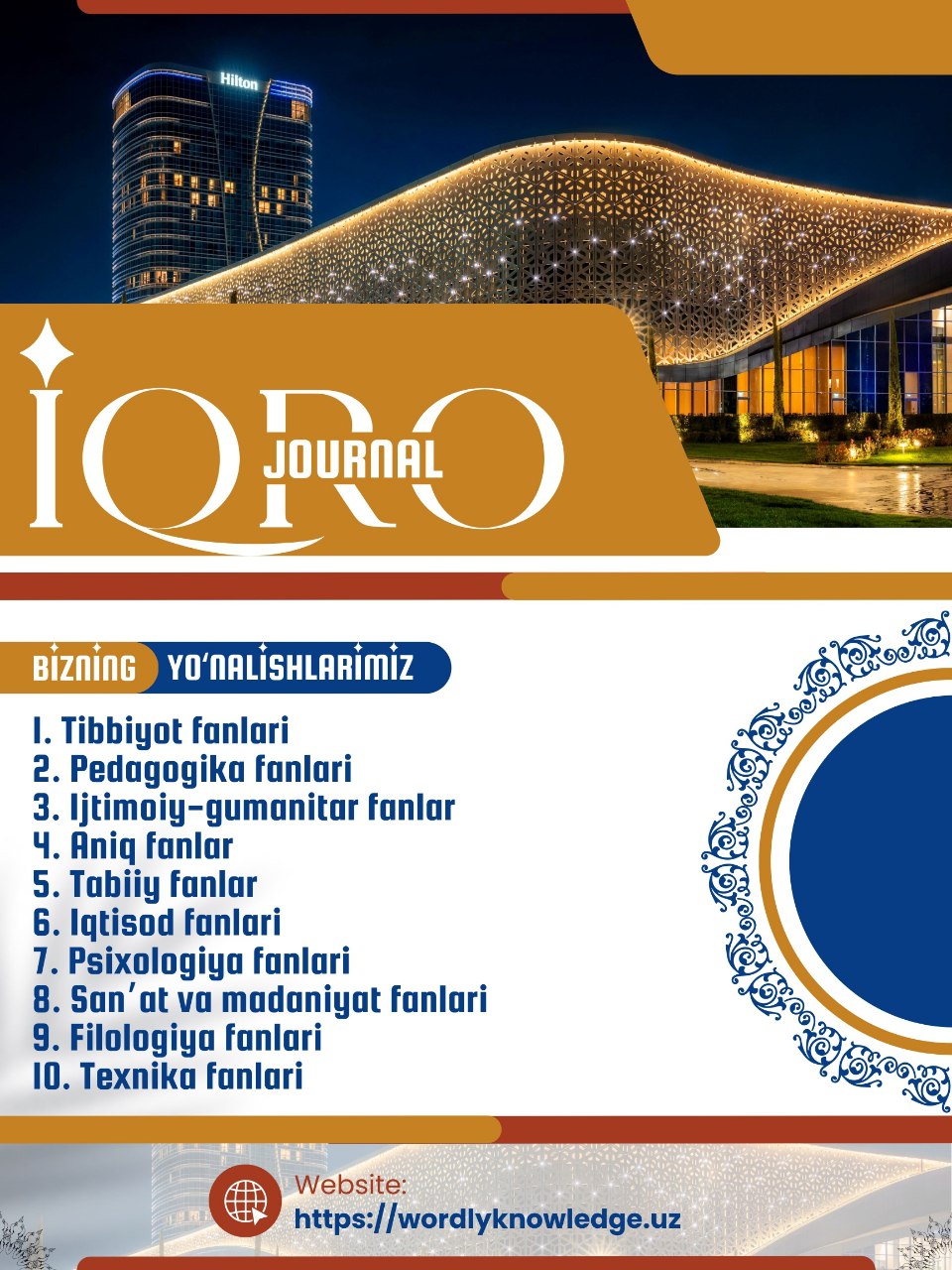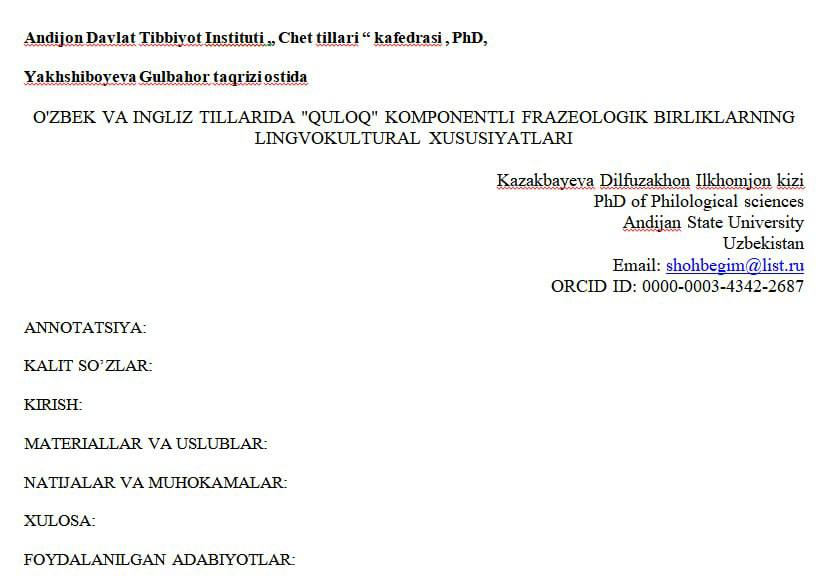COGNITIVE-SEMANTIC FEATURES OF LINGUISTIC IMAGERY IN CLIMATE CHANGE DISCOURSE
Mirzo Ulug’bek nomidagi O’zbekiston Milliy Universiteti Xorijiy filologiya fakulteti dotsenti, PhD Jalolova Shahnoza Muhammedjonovna taqrizi ostida
Keywords:
Climate change discourse, ecolinguistics, cognitive linguistics, conceptual metaphors, framing, linguistic representation, environmental communication, semantic analysis.Abstract
Climate change discourse has gained significant attention due to its impact on ecological, social, and economic domains. This study explores the cognitive-semantic characteristics of linguistic representations of climate change in English ecological discourse. Using cognitive linguistics and semantic analysis, we identify key conceptual metaphors, frames, and lexical choices that shape public perception and understanding of climate change. The study employs corpus-based methods to examine climate-related texts from scientific, media, and political sources. The findings contribute to ecolinguistics by highlighting how language influences environmental awareness and attitudes toward climate issues, emphasizing the need for precise and responsible communication to foster climate-conscious behavior and policies.
References
1.Lakoff, G. (2010). Why it matters how we frame the environment. Environmental Communication, 4(1), 70-81.
2.Stibbe, A. (2015). Ecolinguistics: Language, ecology, and the stories we live by. Routledge.
3.Nerlich, B., Koteyko, N., & Brown, B. (2010). Theory and language of climate change communication. Wiley Interdisciplinary Reviews: Climate Change, 1(1), 97-110.
4.Flottum, K. (2017). The role of language in the climate change debate. Routledge.
5.Hansen, A., & Cox, R. (Eds.). (2015). The Routledge handbook of environment and communication. Routledge.
6.Boykoff, M. T. (2011). Who speaks for the climate? Making sense of media reporting on climate change. Cambridge University Press.
7.Moser, S. C. (2010). Communicating climate change: History, challenges, process and future directions. Wiley Interdisciplinary Reviews: Climate Change, 1(1), 31-53.














